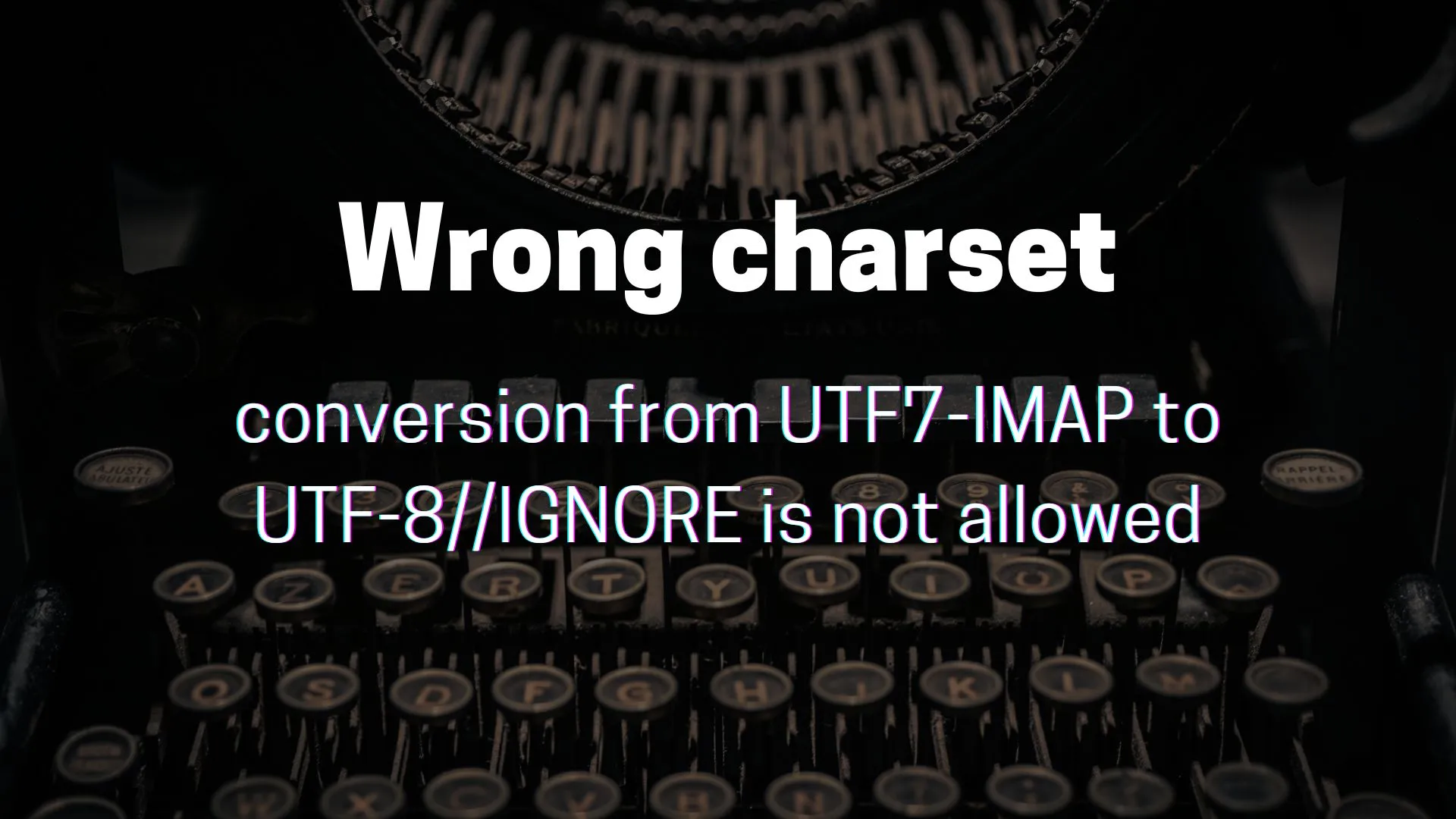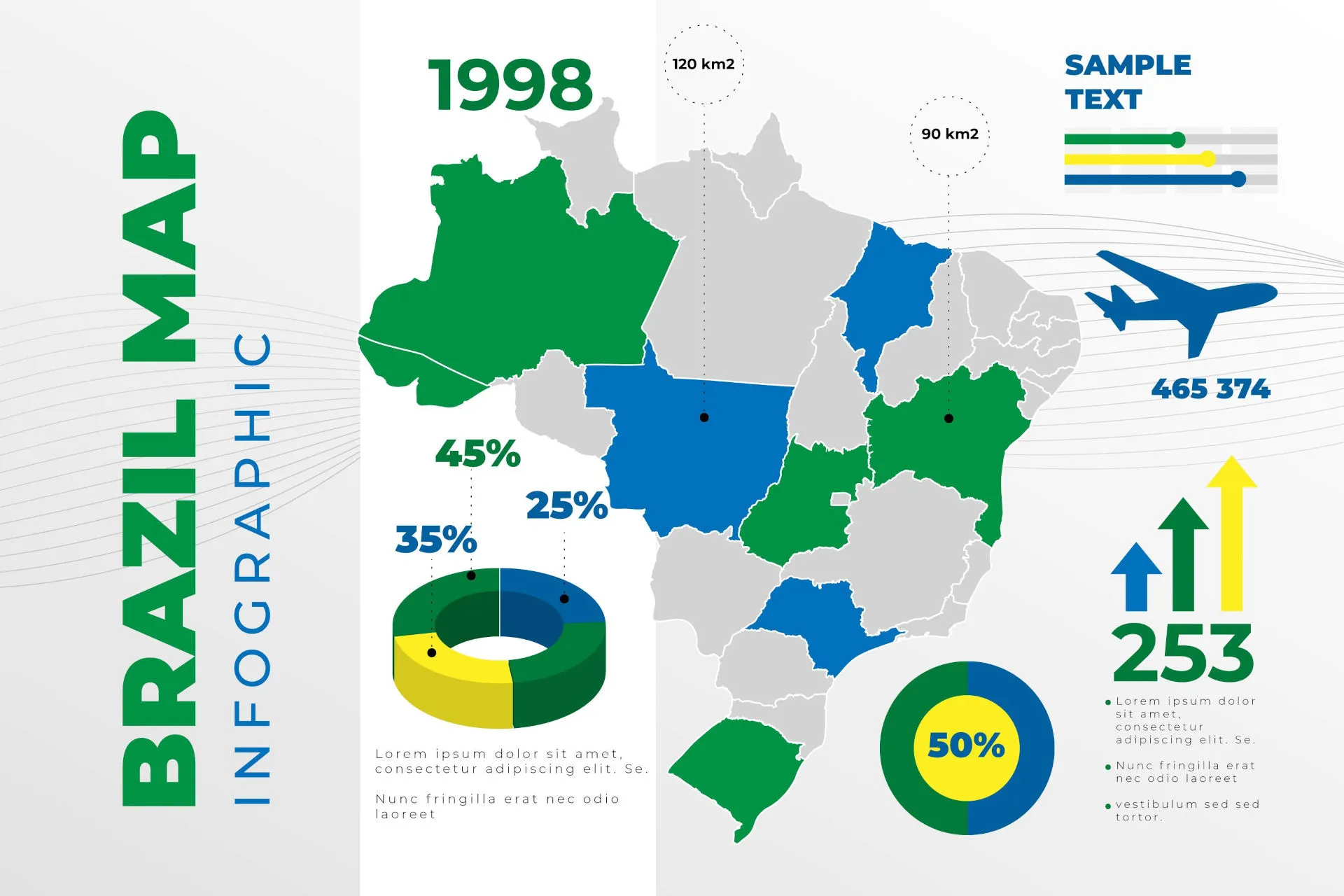When working with different character encodings in PHP and Laravel, you might encounter errors on charset convertion like the following: iconv(): Wrong charset, conversion from 'UTF7-IMAP' to 'UTF-8//IGNORE' is not allowed
This error occurs when attempting to use the iconv() function to convert a string from the ‘UTF7-IMAP’ charset to ‘UTF-8//IGNORE’ charset. In this article, we’ll explore the possible causes of this error and provide solutions to fix it.
Causes of the Error iconv(): Wrong charset, conversion from ‘UTF7-IMAP’ to ‘UTF-8//IGNORE’ is not allowed
There could be a few possible reasons for this error:
- Missing or outdated iconv extension: The PHP iconv extension might not be installed or enabled on your system, or it may be outdated. Ensure that the extension is installed, enabled, and up-to-date.
- Unsupported charset: The ‘UTF7-IMAP’ charset might not be supported by your system’s iconv implementation. Different systems may have different character encoding support in their
iconvlibraries.
Solutions to Fix the Error iconv(): Wrong charset, conversion from ‘UTF7-IMAP’ to ‘UTF-8//IGNORE’ is not allowed
Install or enable the iconv php extension
To install or enable the iconv extension, follow these steps:
a. If you don’t have the iconv php extension installed, install it using your package manager. For example, on Ubuntu/Debian/Mint systems, you can run:
sudo apt-get install php-iconv
b. If you’re using multiple PHP versions, you’ll need to specify the PHP version for which you want to install the extension. For example, to install the iconv extension for PHP 7.4, run:
sudo apt-get install php7.4-iconv
c. If the extension is installed but disabled, you can enable it by updating the php.ini configuration file. Find and uncomment (remove the leading semicolon) the line:
;extension=iconv
Restart your web server after making any changes to the php.ini file.
Use an alternative function for charset conversion:
If the iconv() function does not support the ‘UTF7-IMAP’ charset, you can try using the mb_convert_encoding() function from the mbstring php extension:
$input = "Your UTF7-IMAP encoded string";
$output = mb_convert_encoding($input, "UTF-8", "UTF7-IMAP");
If you don’t have the mbstring php extension installed, you can install it using your package manager. For example, on Ubuntu/Mint/Debian systems, you can run:
sudo apt-get install php-mbstring
Remember to restart your web server after installing the extension.
By following these steps, you should be able to fix the error and successfully convert your string from the ‘UTF7-IMAP’ charset to ‘UTF-8//IGNORE’ charset.
Installing iconv and mbstring php extensions on Windows, Linux Ubuntu and Mint, MacOs
Now, let’s see how to install the required php extensions on various operating systems and environments.
Installing iconv and mbstring on Linux Debian based
Installing iconv and mbstring php extensions on Linux: Ubuntu/Debian/Mint
Install iconv and mbstring extensions:
sudo apt-get install php-iconv php-mbstring
If using multiple PHP versions, specify the desired version:
sudo apt-get install php7.4-iconv php7.4-mbstring
Installing iconv and mbstring on CentOs
Linux: CentOS
Install iconv and mbstring extensions:
sudo yum install php-iconv php-mbstring
If using multiple PHP versions, specify the desired version:
sudo yum install php74-iconv php74-mbstring
Installing iconv and mbstring on MacOs
macOS
If using Homebrew, you can install the extensions with the following command:
brew install php-iconv php-mbstring
If using multiple PHP versions, specify the desired version:
brew install [email protected] [email protected]
Installing iconv and mbstring on Windows XAMPP
Windows: XAMPP
- Open the
php.inifile located in thexampp\phpdirectory. - Find and uncomment the following lines by removing the leading semicolon:
;extension=iconv
;extension=mbstring
- Save the
php.inifile and restart the Apache server.
Installing iconv and mbstring on Windows WampServer
Windows: WampServer
- Open the
php.inifile located in thewamp\bin\php\php{version}directory (replace {version} with your PHP version). - Find and uncomment the following lines by removing the leading semicolon:
;extension=iconv
;extension=mbstring
Save the php.ini file and restart the Apache server.
Final considerations
By following these steps, you should be able to fix the error and successfully convert your string from the ‘UTF7-IMAP’ charset to ‘UTF-8//IGNORE’ charset. Understanding and addressing the underlying causes of the error can help you ensure that your PHP and Laravel applications can handle different character encodings seamlessly.




Comments